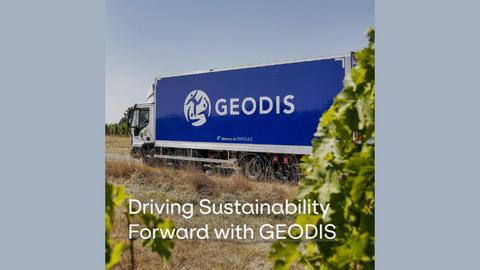Portraits
FOCUS 72: The Importance Of Valuing Supplier Relationships

Emma Merigneux, CEO of Optimal Cost, looks at where the future of supply chain and procurement is headed.
How and when did you get into the business of consulting in Singapore?
I moved to Singapore in 2003 (during SARS) after graduating from ESCP in France. For 10 years, I worked in the corporate world in Procurement & Supply chain in various industries, focusing on managing the supply base and manufacturing partners of the companies I worked for in Asia.
In 2013, while expecting my youngest daughter, I decided to leave the company I was working for to kickstart Optimal Cost and offer a very hands-on and pragmatic approach to consulting, focusing on projects with high impact, high speed and high ROI.
Tell us more about Optimal Cost
Optimal Cost Consulting is a Singapore-based 100% women-owned consultancy specialized in procurement, operations and IT optimization and transformation.
We help companies become more efficient and more profitable by optimizing their business processes and the cost of their operations. We focus on working with Procurement, Operations and IT departments to increase the overall productivity and profitability of the organization.
Our clientele is diverse, both from an industry and size perspective: we started by supporting clients who were based in Europe to now serving mostly global MNCs with regional headquarters in Singapore and Asia. We are also Enterprise Singapore-certified consultants, enabling Singapore SMEs to be eligible for Enterprise Development Grant when leveraging our expertise.
Our service offer ranges from redesign-to-cost projects in the electronics industry, IT procurement-related projects for banks and supplier diversity program for FMCG companies to procurement maturity diagnostics for retailers.
The Coronavirus outbreak is impacting global supply chains in all kinds of ways. Are there any areas for reflection you would like to highlight?
Supply chain diversification is a must. When possible, there is a need to have multiple suppliers qualified for each product/component. Spend consolidation with a key supplier should not prevent you from qualifying other vendors that can be activated if need be.
Procurement as a force of good. More than ever, given the dramatic negative economic impact of this crisis, it is important to use procurement to support local communities. We are seeing an increasing trend of consumers buying directly from their local producers and favoring local supply chains. Consumers are increasingly conscious of the impact on their local community of how and where they spend their money. I hope businesses will follow suit. One-way businesses can ensure having a positive impact on their local communities is by putting in place a Supplier Diversity program.
Supplier diversity is a business strategy that ensures a diverse supplier base (women owned, minority-owned, disability-owned, LGBTQ-owned businesses) in the procurement of goods and services. For reference, today less than 1% of large corporate and government spend worldwide goes to women-owned businesses.
What do large companies need to know when engaging small suppliers (SMEs and Start-ups)?
There are very simple actions or working practices that can alleviate the pressure faced by smaller suppliers. Large companies should only invite to tenders/bids small businesses they are genuinely interested in buying from. If not interested, large companies should simply say so. Small businesses have limited resources and allocating resources to real opportunities is crucial. The second most important action would revolve around payment: reducing payment terms and paying on time.
The Water Cooler Chat
What is the most challenging part of setting up a consulting business?
The competition. We are competing against very big multinational consulting firms whose names precede them. We are a small business and as such, each client makes a difference to us.
As a boss, do you have more time for your kids compared to when you were an employee?
The short answer is no. I have less time. I am fully accountable for the company and my team, and it can be challenging to “disconnect”. Nevertheless, I have greater flexibility in my schedule, so it tends to be easier to manage emergency situations (sick child, doctor appointments etc.)
Name your favourite podcast.
As an entrepreneur, I just can’t get enough of Guy Raz’s “How I built this”. Guy interviews some of the world’s most famous entrepreneurs and dives into the stories behind some of the world's best-known companies. Very inspiring!

Interview with Emma Merigneux, CEO of Optimal Cost , for FOCUS #72. To read more articles from this issue, download your digital copy here


